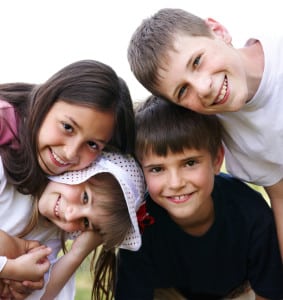 Good habits develop early in life. One of the earliest habits kids learn is their oral hygiene routine, which can have a significant impact on their oral health for the rest of their lives. Fortunately, we can help you get an early start on your child’s good dental health with a few tips from your experienced family dentist!
Good habits develop early in life. One of the earliest habits kids learn is their oral hygiene routine, which can have a significant impact on their oral health for the rest of their lives. Fortunately, we can help you get an early start on your child’s good dental health with a few tips from your experienced family dentist!
Tips to Teach Your Child Good Hygiene
- The teething process can be tedious for parents and babies alike. To ease the discomfort, give your baby something to chew. A teether must be big enough not to swallow, and it must not consist of small pieces that can break apart. Frozen teething rings can harm a child’s sensitive gum tissue, but a cold teether can feel quite good. Avoid liquid-filled toys, because they may puncture and leak.
- Don’t allow your baby to fall asleep with a bottle in his or her mouth. Sugars in milk or juice can contribute to decay and baby bottle syndrome, a painful condition.
- Wipe your baby’s gums with a clean, soft, damp cloth. This will remove bacteria from the gums and acquaint him or her with the feeling of a clean mouth. You can also rub your baby’s gums with a thoroughly-cleaned finger.
- When your baby’s first tooth arrives, brush it with a soft, infant-sized toothbrush and water. Fluoridated toothpaste should not be used until the child thoroughly understands the need to spit out toothpaste (usually around 3 years old). Ingesting too much fluoride can lead to white stains on teeth, called fluorosis.
- Once your child can use toothpaste, apply only a pea-sized amount to the brush. Be careful not to allow your child to swallow the toothpaste.
- When all of your child’s teeth are in, teach him/her to brush at least twice a day, and to floss gently between all of their teeth. Make brushing fun by singing the alphabet or another song. Singing also provides a timeframe for brushing. The Alphabet Song is about the perfect length!



